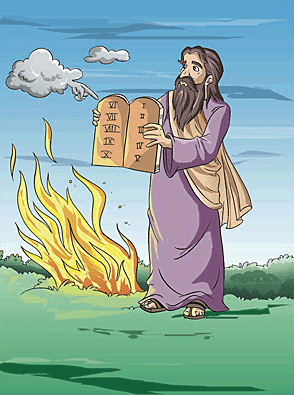pantheon
(s) (noun), pantheons
(pl)
1. All the deities (gods) of a particular religion considered collectively.
2. A circular temple in Rome that was completed in 27 B.C. and dedicated to all the deities of the world, but which has been used as a Roman Catholic church since A.D. 609.
3. A monument or public building commemorating the dead heroes of a nation.
4. A group of people who are the most famous or respected in a particular field.
5. Etymology: from PantheonPantheion (hieron, "shrine"), "of all the gods"; from pantheion, pantheios; from pan-, "all" + theios, "of the gods" or "for the gods"; from theos, "god".
philotheism
(s) (noun) (no pl)
The love of God: Mrs. Simmons believed in philotheism and was an ardent church-goer.
philotheist
(s) (noun), philotheists
(pl)
A person who loves God: Philotheists are those who have a love of and devotion to God.
physitheism
(s) (noun), physitheisms
(pl)
The attribution of a physical form (animal, vegetable, or mineral) to a deity or deities.
Examples of physitheism in action include an ancient Greek or Roman god that assumed the form of an animal or when God spoke to Moses from the burning bush.

First, Moses while taking care of a flock of sheep near Mt. Horeb, "the angel of the Lord appeared unto him in a flame of fire out of the midst of a bush; and he looked, and, behold, the bush burned with fire, and the bush was not consumed." (Exodus 3:2)
Later, "And mount Sinai was altogether on a smoke, because the Lord descended upon it in fire: and the smoke thereof ascended as the smoke of a furnace, and the whole mount quaked greatly." (Exodus 19:18)
It was at Mt. Sinai that God presented the Ten Commandments to Moses.
Based on these quotations from the Old Testament Bible, the image above is only a representation of the two separate occurrences; however, it still illustrates physitheism.
polytheism
(s) (noun), polytheisms
(pl)
Worshiping of or believing in several deities.
polytheist
(s),
(noun), polytheists
(pl)
1. Someone who believes in, or worships, many gods or more than one god.
2. People who have beliefs in more than one god, usually a belief in many gods.
Characterized by the worship of or belief in many deities (gods).
psychotheism
(s) (noun), psychotheisms
(pl)
The doctrine of the absolute spirituality of God.
sciotheism
(s) (noun), sciotheisms
(pl)
A religion in which ghosts are worshiped instead of gods: The doctrine of sciotheism involves the worship of departed ancestors and the spirits of dead people; especially, those believed to appear in bodily likenesses to living people which are the center of spiritual lives and souls.
A religious belief that in the Godhead there are, in addition to the Divine Essence, three other persons; the Father, the Son, and the Holy Spirit; and so making in the Godhead three and one instead of three in one.
Of or pertaining to someone who is both a God and a man; partaking of both the human and the divine: The theandric cooperation of the Divine and human natures that existed in Jesus Christ.
theanthropism
(s) (noun), theanthropisms
(pl)
The doctrine that there is a union of the human and the divine natures in the single person of Jesus Christ.
theanthropist
(s) (noun), theanthropists
(pl)
A person who believes that the divine can manifest itself in mortal form or that mortals can be divine: A theanthropist believes in the union of the divine and human natures; especially, the manifestation of God as man in Jesus Christ.
theanthropos
(s) (noun) (no plural found)
1. A godlike person: Jesus Christ was the unification of the divine and human natures.
2. A human god; a human incarnating, or believed to incarnate, God, or a god.
If you would like to take self-scoring quizzes over many of the words in this section, then click on these Theo Quizzes so you can see how much you know about the following "theo-, -theism" words.
Related religious-word units:
church;
dei-, div-;
ecclesi-;
fanati-;
hiero-;
idol-;-olatry;
zelo-.



